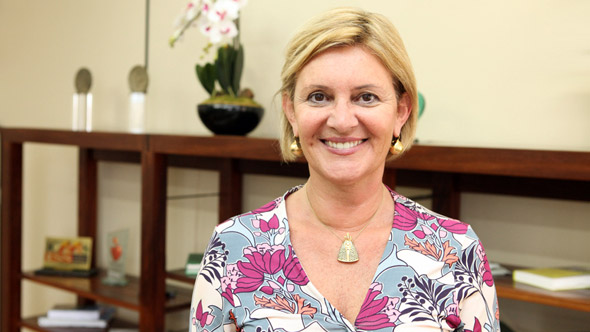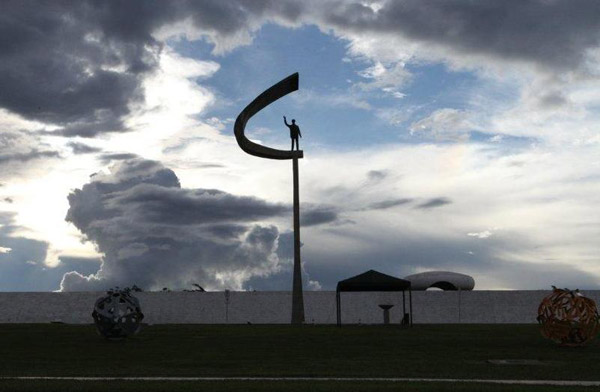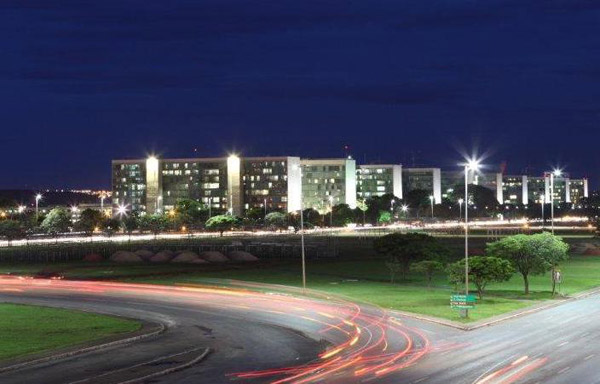Brazil: Economic Development of District Federal 2012
Ivelise Longhi Pereira da Silva talks about Codeplan, a public institution created to support the Government of the Federal District in terms of strategic planning. The President also explains the importance of Codeplan as an economic, social and urban development institution.
Interview with Ivelise Longhi Pereira da Silva, President of Codeplan

In Brasilia, the economy is mainly based on federal administration. Is this an opportunity or a problem? How do you see the issue yourself, would you like to diversify the economy in order to make it more sustainable towards technology, industry, and other sectors?
We know exactly the kind of activity we would like to attract to Brasilia: knowledge economy and companies committed with sustainability. Automobile manufactures, for instance, wouldn’t find a place in Brasilia, but in the surrounding area. Another important sector is tourism: the Brazilian capital is listed as a World Heritage Site of UNESCO.
Brasília is really different from other Brazilian towns. Brazil’s capital labor market has developed aiming to give required structure for the new capital of Brazil. The economic activities in Federal District also emerged deeply influenced by its peculiar urban structure. Industries exist only as a complementary factor – a phenomenon named “tertiary sector originated” industrialization. As the seat of federal government, and also of the Federal District administration, and geographically distant from the financial center of the country – concentrated in São Paulo and region surround – it’s easy to understand why those industries play only a secondary role in Brasilia’s economy, and they exist to fill the demands of the public service.
The main economic activities are a result from its administrative function, and they are based on the state sector, so as on services, trade and the construction sector. The federal and the local governments are responsible for around 57% of the jobs – a huge amount. That’s why it’s important to diversify the sources of employment.
And we know exactly the kind of activity we would like to attract to Brasilia: knowledge economy and companies committed with sustainability. Automobile manufactures, for instance, wouldn’t find a place in Brasilia, but in the surrounding area. Another important sector is tourism: the Brazilian capital is listed as a World Heritage Site of UNESCO.
If nothing is done in the social areas, what can happen to Brasilia?
Besides the development of Brazil in the last years, there are still lots of inequalities in the country: people living in extreme poverty, earning less than R$ 70 (US$ 33) per month and few groups that concentrate the high incomes. Brasilia reflects this picture. Studies showed the inequalities became lower in 2009 – but the numbers are still not positive: the richest 20% of the population earn 29,7% more than the poorest 20%.

Therefore we need to work a lot regarding the social question. Brasilia has a high potential to create new sources of employment, a vast range of jobs which could also cover the population that lives in extreme poverty. Tourism, for example, would be an interesting choice.
At the same time we have to invest in professional training. Recently we’ve started with such programs aiming at qualifying people to work at the World Football Cup. This experience will be important to keep on with these programs even after the international event.
One of the big issues that we need to work out is the lasting social problems in Brasilia’s surroundings that bring to the city big difficulties in our health system. We were supposed to serve only the 2.5 million inhabitants of Brasilia. However our hospital network serves around 5 million people and we are not properly prepared for that. These issues have to be discussed in all levels of administration in Brazil, because they don’t happen only here in the Federal District. But it already shows that we have to invest in Brasilia’s surrounding.
For foreign investors, Brazil is a quite complicated destination: there is a complicated tax system, a difficult access to electricity or to an efficient education, and it becomes very expensive to employ people compared to other countries. How is the Federal District different from São Paulo and others, and which are the specific challenges surrounding this specific destination?
In fact, Brasilia is a very different city in its urbanism design and also in its economic activities. And these differences are exactly what make Brasilia a good and charming place to live. As I said, we want to boost some other economic sectors, such as non-polluting and sustainable industries, mainly micro and medium enterprises. Furthermore we have high education and income levels – a great consumer market. Foreign companies have been investing in the construction of some buildings and hotels in the city, so we can say we’ve been working to draw investment for the construction sector. At this moment, the building of a new residential area is in progress: the Northwest, a green neighbourhood with better environmental perspectives. On the one hand, there are indeed some restrictive environmental conditions and also some difficulties with not yet properly qualified hand labour, on the other hand a large proportion of the population has higher education and demands knowledge industries and high-tech products.
So, compared to other Brazilian metropolis, like São Paulo or Rio de Janeiro, where the manufacturing costs are very high and the market for some services and products is already saturated, Brasilia has considerable advantages.

Nowadays Codeplan, a public development enterprise, participates in the discussions about the correct ways to promote the sustainable industrial development of Brasilia.
Is Codeplan working with other organizations?
Codeplan is, at the moment, reviewing its role. It’s a place where people, companies and also public administrations can obtain data to fulfil their projects and to lay down their public policies. But now we are going a little bit further, trying to get technical cooperation agreements with local, national, and international bodies, so that we can identify what kind of partnerships we can make in the economic, urban, and environmental areas.
If you had a solicitation / request to make at an international level, what would it be?
We have to find a way to make information technology available to all. In last march, I participated to a seminary in Barcelona promoted by CIDEU- Centro Iberoamericano de Desarollo Estratégico Urbano, where we discussed about this matter and how the cities must work together. They have universities that can provide training to people in this particular area. We want our technicians to be more prepared for this new world where a town can work as a network connected online. It is only an example. We can change and learn experiences and knowledge with many others similar institutions.
Do you have anything else to add?
I would only like to highlight the importance of planning, which is essential in every aspect of our lives. It is very important to use real and trustful data. As we, in Codeplan, take it very seriously, in this matter we are prepared to answer questions and provide economic, social and urban information and also researches in those areas.